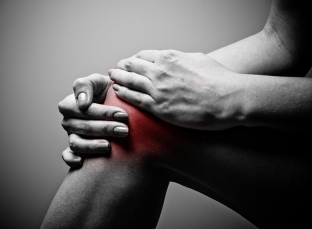Edema of the legs, which appear due to an imbalance of fluids in the vessels and intercellular space, may be slightly noticeable, or may be more pronounced. Often they are a natural reaction of the body to external factors, for example, in the heat or during flights, this problem is observed in the vast majority of people. However, like any other symptom, swelling of the legs, often accompanied by pain, can be a warning to the body about quite serious diseases. To understand how to get rid of swelling and pain in the legs, you need to accurately determine the cause of their appearance.
It is worth noting that most often the shins and feet swell – they are the most loaded during everyday walking and when a person is in an upright position. As a result, these parts of the lower extremities are filled with excess fluid and swell, often causing pain.
To get rid of swelling and pain in the legs, you first need to understand what the condition of the lower extremities is – always a symptom. Let's figure out what kind of diseases can be a symptom of swelling of the legs and the pain that accompanies it.
How to get rid of swelling and pain in the legs, depending on the cause
Reason #1 – overload
In case of prolonged standing, the lower legs tend to swell equally. Most often, in this case, after a hard day, the legs just need rest – lift them higher (on a wall, a pile of pillows) and let the liquid distribute properly.
Reason #2 – heart failure
If the heart can't do its job, circulation is disrupted. At the same time, blood begins to accumulate in the veins of the legs, which leads to vasodilation, and as the liquid component of blood seeps into the tissues, edema will increase. The edema caused by this cause is not accompanied by pain and appears on both legs – characteristic symptom of heart problems, especially if accompanied by difficulty in breathing.
Reason #3 – phlebitis
Phlebitis (as well as varicose veins and phlebothrombosis) can be suspected by swelling of the lower limb, which is often accompanied by pain. Such symptoms can be caused by inflammation of the veins in the legs or their blockage. There are several varieties of phlebitis, the phlebologist is engaged in the treatment of this disease. As a rule, for successful treatment, therapy must be complex.
Reason #4 – kidney disease
Because the kidneys are responsible for removing fluid from the body, dysfunction can lead to swelling of the legs, which is more pronounced in the morning and subsides a little in the evening. In addition, impaired kidney function also causes swelling in both the hands and face. How to get rid of swelling and pain in the legs caused by problems with the kidneys, the doctor specializing in this issue will tell – nephrologist.
What other causes of swelling and pain in the legs can be?
- diseases of the lymphatic system of the lower extremities;
- pathology of the bones and joints of the legs;
- injuries;
- skin diseases;
- thyroid disorders;
- pregnancy;
- PMS;
- adrenal hyperfunction;
- serious liver disease;
- pathologies of the nervous system.
Get rid of swelling and pain in the legs – does not mean to cure the disease that caused such symptoms. Therefore, if you are sure that edema does not appear simply as a result of excessive load on the legs (standing work, heat, flights, etc.), you should consult a doctor in order to make a correct diagnosis.

It is possible to get rid of swelling and pain in the legs caused by their fatigue without any drugs. For this, it is enough:
- to ensure that the legs rest;
- make a massage;
- raise your legs above your heart, placing them on a pillow or other elevated surface, lie down in this position for 10-15 minutes;
- wear special compression tights, stockings, stockings;
- do gymnastics for the legs.
These same methods will help not only get rid of swelling and pain in the legs, but also help prevent their occurrence. If you have reason to suspect varicose veins, diseases of the kidneys or other organs or systems of the body, as well as if swelling of the legs bothers you quite often, estet-portal.com highly recommends not delaying the visit to the doctor – the consequences can be dire.






Add a comment